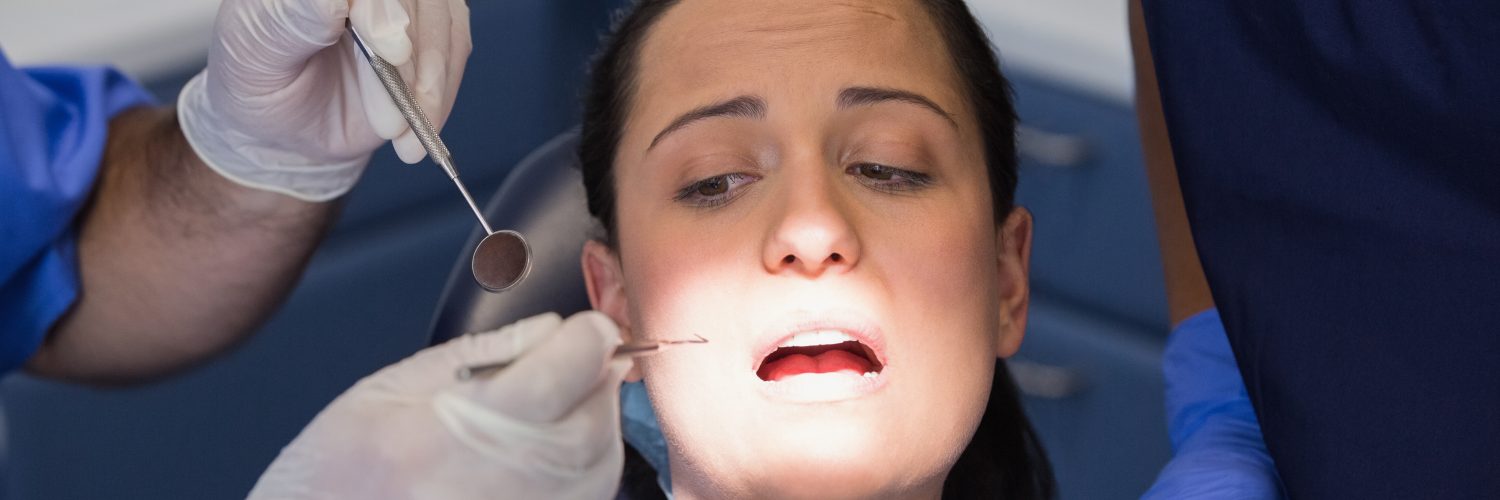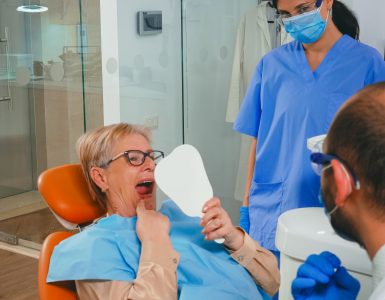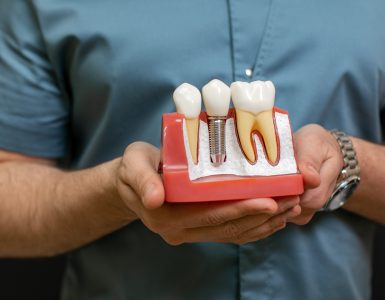It is quite common to feel a little nervous and anxious about visiting the dentist. The reasons for this will vary from person to person. Your oral health is important and avoiding a trip to the dentist will only make any dental health problems you may have much worse and potentially more complex to rectify. Thankfully, there are ways available to help you manage any fears you are having.
What is dental anxiety and how can it affect your oral health?
Dental anxiety is a term used to describe feelings of fear, anxiety and stress you experience when visiting the dentist which may lead you to delay getting dental treatment. For some, however, that fear can be extreme and overwhelming leading you to total avoidance. This dental phobia is considered an anxiety disorder and may result in panic attacks, nightmares and even physical illness at the thought of visiting the dentist.
By attending regular check-ups with your dentist, any oral health issues can be caught early and treatment is much simpler and less invasive. Leaving these issues unattended to can cause them to deteriorate, become more complicated to remedy and can even lead to other health problems.
What causes dental phobia and anxiety?
There can be many reasons why you may experience anxiety and fear at attending the dentist.
- Past experiences. You may have had a traumatic experience in the past relating to dental treatment or in another healthcare situation, possibly even as far back as childhood.
- Fear of pain. This is a common fear that may stem from a previous painful experience or from hearing the “horror” stories of others. These days, with advances in modern dentistry, the use of quick acting anaesthetic injections means that dental procedures are now virtually pain free.
- Fear of injections and needles. Being terrified of needles is common, especially when they go in your mouth, whether it’s just the thought of it, or the feeling of it being inserted. For some there is a fear that the anaesthetic won’t work quick enough, or at all.
- Fear of anaesthetic side effects. There are several potential side effects of anaesthesia including dizziness, feeling faint and nausea. The most common is numbness in the mouth and lips which can be uncomfortable, but will not last for too long.
- Embarrassment. You may have left your visit to the dentist for too long and feel embarrassed about the condition of your teeth or your breath, especially with the dentist so close. You may be worried that the news will be bad and that your dentist may judge you.
- Loss of control. There is a measure of trust needed and you may feel vulnerable sitting in the dentist’s chair unsure of what is happening in your mouth. This can be an issue for those who have experienced past trauma in the head and neck or been subjected to abuse.
What are the symptoms of dental phobia and anxiety?
Some of the signs of dental anxiety are:
- Sweating or sweaty palms
- Racing heartbeat or palpitations
- Dry mouth
- Fast and shallow breaths
- Low blood pressure and possible fainting
- Distress, crying or panic attacks
- Nausea or physical illness
- Trouble sleeping or nightmares before an appointment
- Withdrawal or using humour or aggression to mask anxiety.
What can you do to manage it?
Whatever the reason for your dental anxiety, there are ways that it can be managed.
Let your dentist know
It is important that you have a discussion with your dentist about your fears, so that a treatment plan can be put together to help you manage them. You dentist is familiar with dental anxiety and will be more than happy to put procedures in place to make things easier for you. Exposure therapy may be useful. Don’t be afraid to ask questions and get your dentist to explain the procedure to you. You can arrange a hand signal to let your dentist know that you are feeling uncomfortable and need to take a break. Bringing a support person in with you may also help.
Distraction
Sometimes it can be the noises around you that trigger your anxiety. Your dentist will be able to provide you with music or a TV to help, or you can bring your own headphones and music that will help to take you mind off what is going on.
Relaxation and mindfulness techniques
For many people relaxation and meditation techniques can be useful. Focus on your breathing as you inhale and exhale slowly. Then focus on relaxing the tension in your muscles slowly one body part at a time starting from your head and working your way down to your toes. Visualisation techniques may also help. Start practising these regularly starting a couple of weeks before your appointment.
There are therapies that may help
For those people who suffer from severe dental phobia, hypnosis may help. Therapies such as cognitive behavioural therapy have also been beneficial for some, so a referral to a psychologist may be recommended. Another effective solution is using exposure therapy, which involves seeing your dentist on a more gradual basis. You can start making visits to your dentist without actually having an examination and then building up your visits to have an x-ray or teeth cleaning or partial examination until you are comfortable with participating in a full appointment. Regular visits will also help you to get to know your dentist and build trust so you will feel safe.
Sedation
There are several options for sedation that can help you relax during dental treatment. You should discuss these with your dentist to ensure you are fully informed or any possible side effects.
- Nitrous oxide or happy gas. A mask is fitted to your face and you breathe in a mixture of oxygen and nitrous oxide. You will still be awake and will feel a relaxed and pleasant sensation.
- Oral sedatives. Prescribed by your dentist or doctor, this short-acting, single dose tablet should be taken one hour before your appointment.
- Intravenous (IV) sedation. Provided by a dental seditionist, medication is provided through a drip is placed into a vein in your arm or hand. This is known as conscious sedation. You will feel relaxed and possibly drift off into a light sleep, but will still be able to respond to verbal prompts.
Most importantly, don’t forget to have that chat with your dentist. He will be able to advise you in more detail about the various alternatives and provide you with referrals to other therapies if necessary.




